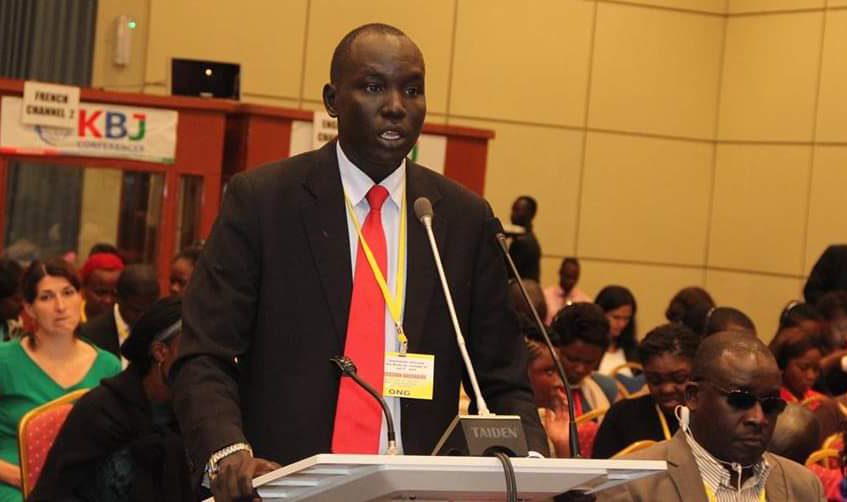
Beny Gideon Mabor, Commissioner for the South Sudan Human Rights Commission - credit | Courtesy
15 of December 2013 represents the darkest day in the history of South Sudan, the South Sudan Human Rights Commission has said.
Beny Gideon Mabor made the remarks as South Sudan marked eight years since the county plunged into deadly political violence on 15 December 2013.
He said South Sudan has to create a disciplined and professional army that is subordinate to a civilian authority is the only way to avoid a repeat of the 2013 conflict.
The Commissioner says he is reminding the citizens and government not to repeat the horrible situation South Sudanese went through as a result of the political violence.
The 2013 conflict started after the SPLM liberation council convened a meeting between 14th and 15th December, 2013 to discuss matters dividing the leadership and the party.
This was followed by an exchange of gunfire between two rival Presidential guards units at Giada – military base.
The fighting soon spread to other parts of the country.
According to a UN report, the violence has killed over 400,000 people and displaced millions in the country.
The Human Rights Commissioner points out that the political violence has turned the hopes and aspirations of the people of South Sudan into a nightmare.
He added that the country remains in a serious economic and humanitarian crisis with millions more internally displaced as well as foreign countries.
Beny says the SPLM leadership political disagreement that led into violence in 2013 could have been resolved through what he described as dialogue by South Sudanese politicians and other stakeholders.
“Today represents the darkest day in the history of our country once we slipped into political violence on the 15 of December 2013,” Beny said.
“The violence has caused a huge catastrophe in the lives of our people and that has been the situation witnessed so far.”
“The anniversary of 15 December is a friendly reminder to the people and Government of South Sudan on the horrible situation South Sudanese went through as a result of the political violence.”
Commissioner Beny says the parties have to implement the revitalized peace agreement so that South Sudanese are not subjected to another suffering.
“My message of today is that, the revitalized agreement, which is the legal framework that has established TGoNU, presents the greater opportunity for the people and the government of South Sudan to implement peace agreement,” Beny stated.
“Never again should the people of South Sudan be subjected to the humanitarian disaster that has undergone during the previous years of political violence.”
Beny called on both the government and friends of South Sudan to release financial and technical resources in the implementation of the revitalized peace agreement.
He also asked the peace government to create an enabling environment for all stakeholders to dialogue freely.
The Human Rights Commissioner says peace parties should collectively implement three main pillars of the peace agreement.
They include unification of the rival security forces to have one unified army that’s discipline, professional, and subordinate to the civilian authority.
He said citizens should be allowed to actively participate in transitional justice mechanisms so that they address legacies of the past human rights violations and guarantees of non-recurrence.
Beny further called for an inclusive constitutional making process that will transition people of South Sudan into elections and forge a united and stable constitutional democracy.
Support Eye Radio, the first independent radio broadcaster of news, information & entertainment in South Sudan.
Make a monthly or a one off contribution.
Copyright 2024. All rights reserved. Eye Radio is a product of Eye Media Limited.